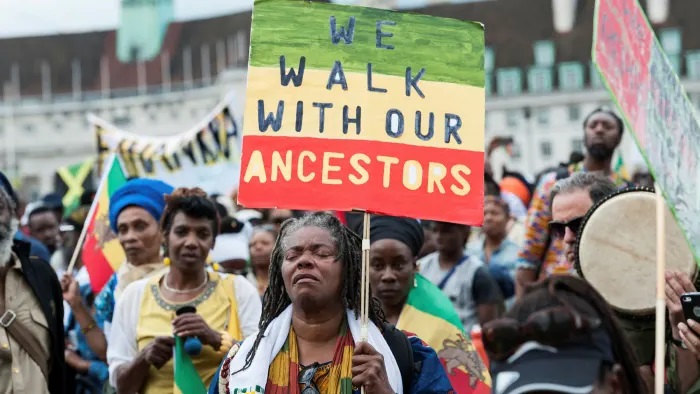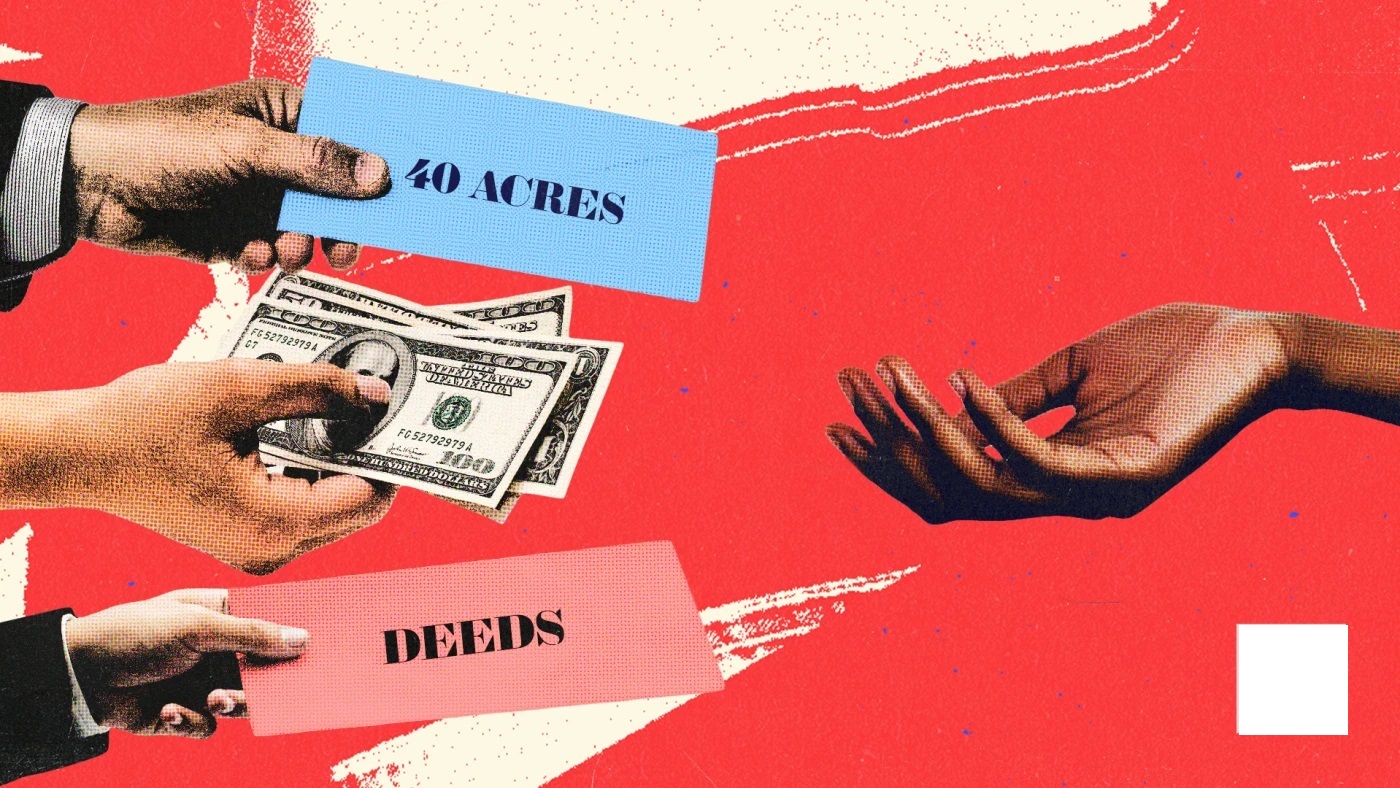Is it possible that reparations for African Americans is becoming a politically viable point of discussion and action in New Orleans? We are about to find out.
On July 27th the MacArthur Foundation announced that it was awarding $80 million in grants to advance “racial and ethnic justice.” Under this program, the Institute of the Black World 21st Century was awarded $1.5 million to support the activities of the National African American Reparations Commission (NAARC) and $1.5 million to the National Coalition of Blacks for Reparations (N’COBRA).
Our very own Dr. V. P. Franklin, distinguished author, scholar, and organizer, recently conveyed this great news to the pillars of Justice and Beyond. Justice and Beyond is a local coalition of progressive organizers intent on lifting up the concerns of people of color. Dr. Franklin’s wisdom, connections, and infectious smile have become an essential part of the J and B leadership team. He is a Commissioner for NAARC and has been working for reparations for almost a decade.

Dr. Franklin envisions a Reparations Task Force in New Orleans similar to those that have been established in a dozen other cities. This Task Force would raise money. And it would be a clearinghouse for ideas about how to repair the damage created by the historical crimes. These include
- slavery,
- Jim Crow segregation,
- legalized racial discrimination
- and their devastating and lasting legacies like
- substandard housing
- unequal education and
- poor social welfare for African Americans in New Orleans.
Big job. But Dr. Franklin has a brilliant idea about where to begin. He says, “Specifically, the Reparations Task Force would be asked to pursue reparatory justice in order to maintain and support financially much-needed restorative justice programs in New Orleans. In the midst of a new wave of gun violence, restorative justice programs that are aimed at helping those who are suffering trauma and psychological problems from this violence have been reduced or eliminated. At the same time, social services have been reduced for the formerly incarcerated in need of housing, employment, and social assistance. For the past five years, the Louisiana government has been reducing the financial support for restorative justice programs when they are desperately needed. The Reparations Task Force could generate financial support for restorative justice activities to assist the traumatized victims of gun violence and the reentry of formerly incarcerated men, women, and children into the community.” In other words, step in where government has let us down.
There are several small, underfunded groups in New Orleans which have the expertise to do this restorative work. Here is a sampling: ReEntry Mediation of Louisiana (REMILA) is a 501c3 non-profit organization founded by formerly incarcerated people and family members of incarcerated people to offer free, professional, confidential, non-judgmental, and voluntary mediation services inside of prisons. Professionally trained mediators with first hand knowledge of the prison system facilitate sessions between incarcerated people and their loved ones 6-12 months before a person is scheduled to come home from incarceration. These loved ones can include parents, children, siblings, spouses, pastors, former neighbors, and former employers. During the mediation, people can make a reentry plan about housing, employment, addiction recovery, parenting, or anything else that is important to them. Says Alison McCrary, founder and mediator with REMILA: “REMILA reunites families, uses a mediation process based on self-determination, facilitates a restorative justice process, and reduces recidivism rates.” More information can be found at www.reentrymediation.org.
RELATED: Reparations for Slavery
Troi Bechet is founder and CEO of the Center for Restorative Approaches. She says that these approaches “recognize that crime and wrongdoing hurt people. And that a just response must offer the opportunity for healing.” That is in contrast to the mainstream approach which is dubbed retributive and focuses on punishment. Bechet points out the broad application for restorative approaches in both criminal and social contexts. “It focuses on dialogue to achieve active, rather than passive accountability for harm caused and making things right in a way that upholds human dignity and enables transformation.” She contends that the legal system in our country has been broken by the legacy of racial injustice and that restorative approaches offer reparation for that harm. See www.centerforrestorativeapproaches.org.
Community Mediation Services is a nonprofit providing transformative mediation and restorative interventions in New Orleans on a sliding fee scale since 1994. Its foremost restorative practitioner, Lou Furman, sees possibilities for victim-offender mediation. He says, “Restorative Justice mandates responsibility and accountability from those who committed the harm. This must be the first step in reparation and addressing the harms of those traumatized by gun violence. Those harmed are twice victimized when oppressors deny their wrongdoing.” See www.CMSnola.org
Our ancestors began the fight for reparations centuries ago. Restorative Justice is a relatively new concept of justice in the United States that gets to the heart of how to right a wrong. Today we have an increased understanding of the enormity of racial injustices as well as the horrendous cost to ALL of us. Now, with the potential support of the MacArthur Foundation we also have the possibility of funding for reparations through restorative justice. Local expertise in innovative strategies could begin to get us out of this mess. Don’t we owe it then to our ancestors and to each other to set up a Reparations Task Force as an important step toward repair?


[…] https://blacksourcemedia.com/reparations-for-african-americans-in-new-orleans/ […]